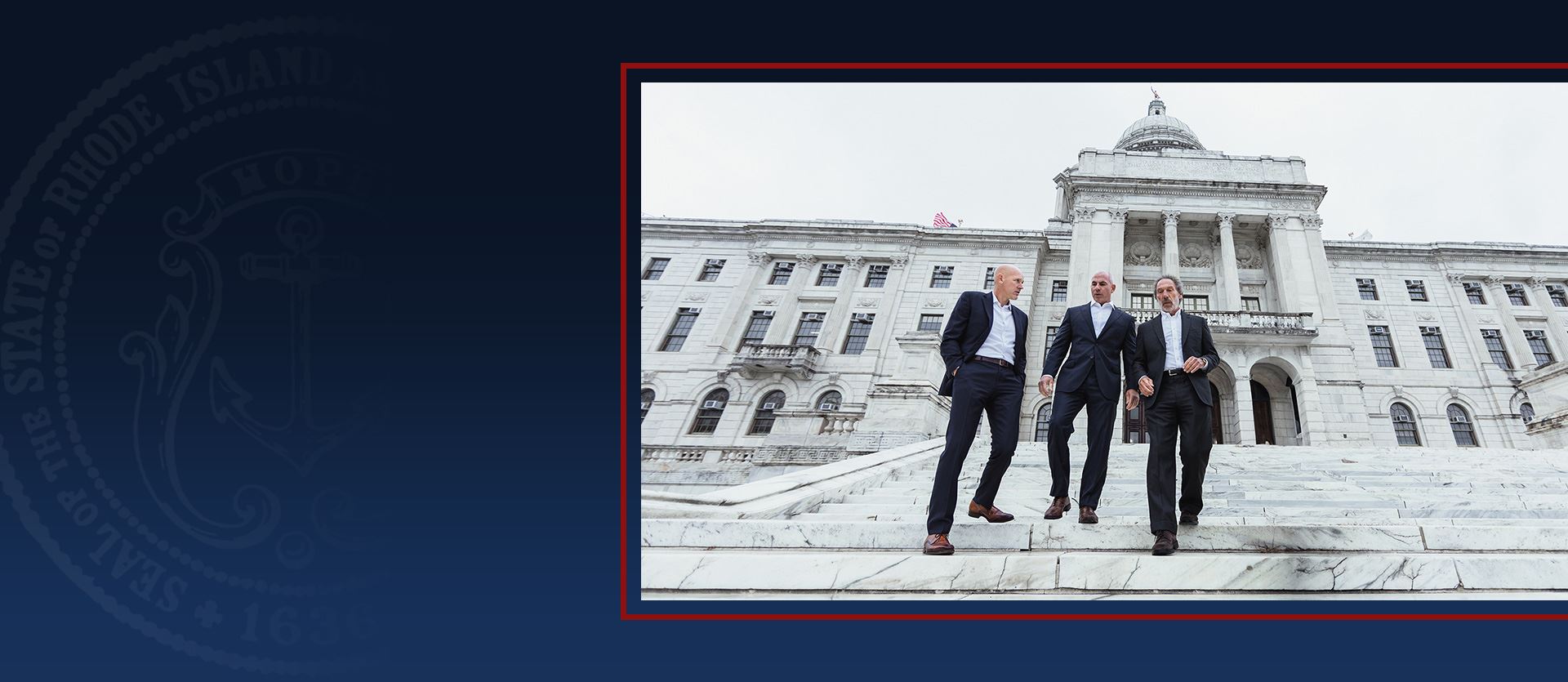
Over $1 Billion Won for Our clients
Helping Injured Victims Since 1975
Hospital Negligence Attorneys in Rhode Island
When Healthcare Facilities Are Responsible for Medical Malpractice
Liability in a medical malpractice case may lie with an individual, such as a surgeon or doctor, with a hospital or other medical facility, or with both an individual and facility.
It will be important to carefully investigate the circumstances surrounding the act of negligence itself as well as the healthcare facility’s involvement in hiring and managing its employees and working with independent doctors.
You Need an Experienced Legal Team to Prove Hospital Negligence
Hospital negligence is not easy to prove, but it can be done through meticulous investigation and case preparation. Our Rhode Island hospital malpractice lawyers are familiar with the types of hospital negligence and how it can lead to patient injury or wrongful death.
Decof, Mega & Quinn, P.C. has represented the injured from our Providence law offices since 1975, and we have secured a number of multimillion-dollar settlements against healthcare professionals and facilities alike.
Call our firm at (401) 200-4059 for a free consultation and review of your case.
What is Hospital Negligence?
Hospital negligence occurs when a hospital, its staff, or its administration fails to provide a reasonable standard of care to patients, resulting in injury, illness, or worsened medical conditions. Hospitals have a legal duty to ensure that patients receive competent care from qualified medical professionals, maintain clean and safe environments, and follow established protocols for diagnosis and treatment. When a breach of this duty occurs, and it leads to harm, the hospital may be held liable for medical malpractice or negligence.
Hospital negligence can involve the actions (or inactions) of various parties, including doctors, nurses, technicians, and administrative staff. It can also stem from inadequate policies, insufficient staffing, or poor facility maintenance.
Common examples of hospital negligence:
- Misdiagnosis or Delayed Diagnosis: When a doctor or medical professional fails to correctly diagnose a patient’s condition or delays a diagnosis, the patient may not receive the necessary treatment in time, leading to serious health complications or death.
- Surgical Errors: Mistakes made during surgery, such as operating on the wrong site, leaving surgical instruments inside the patient, or causing injury to nearby organs, can have life-threatening consequences.
- Medication Errors: Administering the wrong medication, incorrect dosage, or failing to check for potential drug interactions can cause severe harm to patients. This type of error may occur due to miscommunication between medical professionals or failure to review patient records.
- Failure to Monitor Patients: Hospitals must monitor patients’ vital signs and overall condition, especially after surgery or during critical care. Neglecting to monitor a patient adequately can result in undetected complications or worsening of the condition.
- Inadequate Infection Control: Poor sanitation practices and failure to follow infection control protocols can lead to hospital-acquired infections (HAIs), which can be life-threatening, especially for vulnerable patients.
- Anesthesia Errors: Mistakes in administering anesthesia, such as giving too much or too little, failing to consider the patient’s medical history, or not monitoring the patient’s response, can result in serious injury or death.
- Failure to Prevent Falls or Injuries: Hospitals are responsible for ensuring patient safety by preventing falls or accidents, especially for elderly or incapacitated patients. Neglecting to follow fall prevention protocols can lead to fractures, head injuries, and other complications.
- Improper Discharge or Aftercare: Discharging a patient too early without proper instructions or failing to provide adequate follow-up care can lead to deterioration of the patient’s condition, resulting in readmission or worse outcomes.
- Lack of Informed Consent: Hospitals are required to inform patients about the risks, benefits, and alternatives of any treatment or procedure. Failure to obtain informed consent can be considered negligence, especially if the patient suffers harm as a result.
- Failure to Communicate Test Results: Miscommunication or failure to inform patients of abnormal test results can delay necessary treatment and cause serious harm, particularly when dealing with life-threatening conditions like cancer or infections.
- Negligent Hiring or Training Practices: If a hospital hires unqualified staff or fails to provide proper training and supervision, it can contribute to errors that harm patients, making the hospital liable for negligence.
- Emergency Room Negligence: Errors in triaging, diagnosing, or treating patients in the emergency room can result in delayed or inadequate treatment, potentially worsening the patient’s condition.
Surgeons and doctors are typically not employees of the hospitals where they practice, and they carry their own medical malpractice insurance. Nurses and administrative personnel, however, are most often hospital employees. As such, liability in a hospital malpractice case may or may not fall on the hospital.
Exceptions may apply even in cases where the healthcare professional in question was not an employee of the hospital, if it can be proven that the facility knew of past acts of negligence or failed to act on reports of new malpractice.
Why Choose Decof, Mega & Quinn, P.C. for Your Hospital Malpractice Case in RI?
Choosing Decof, Mega & Quinn, P.C. for your hospital malpractice case means partnering with Rhode Island's seasoned legal professionals who prioritize your needs. With a history of significant recoveries for our clients, we offer a blend of extensive legal knowledge and deep community ties to navigate the complexities of each case. Our mission is to provide personalized legal support, ensuring you feel empowered and informed throughout the entire process. Trust us to advocate for your rights and work toward the justice and compensation you deserve.
Schedule your consultation with a Rhode Island hospital malpractice attorney at our firm by calling (401) 200-4059 or filling out our online contact form today.

-
$15 Million Medical Malpractice
-
$10 Million Medical Malpractice
-
$10 Million Medical Malpractice




.2408191350077.png)












